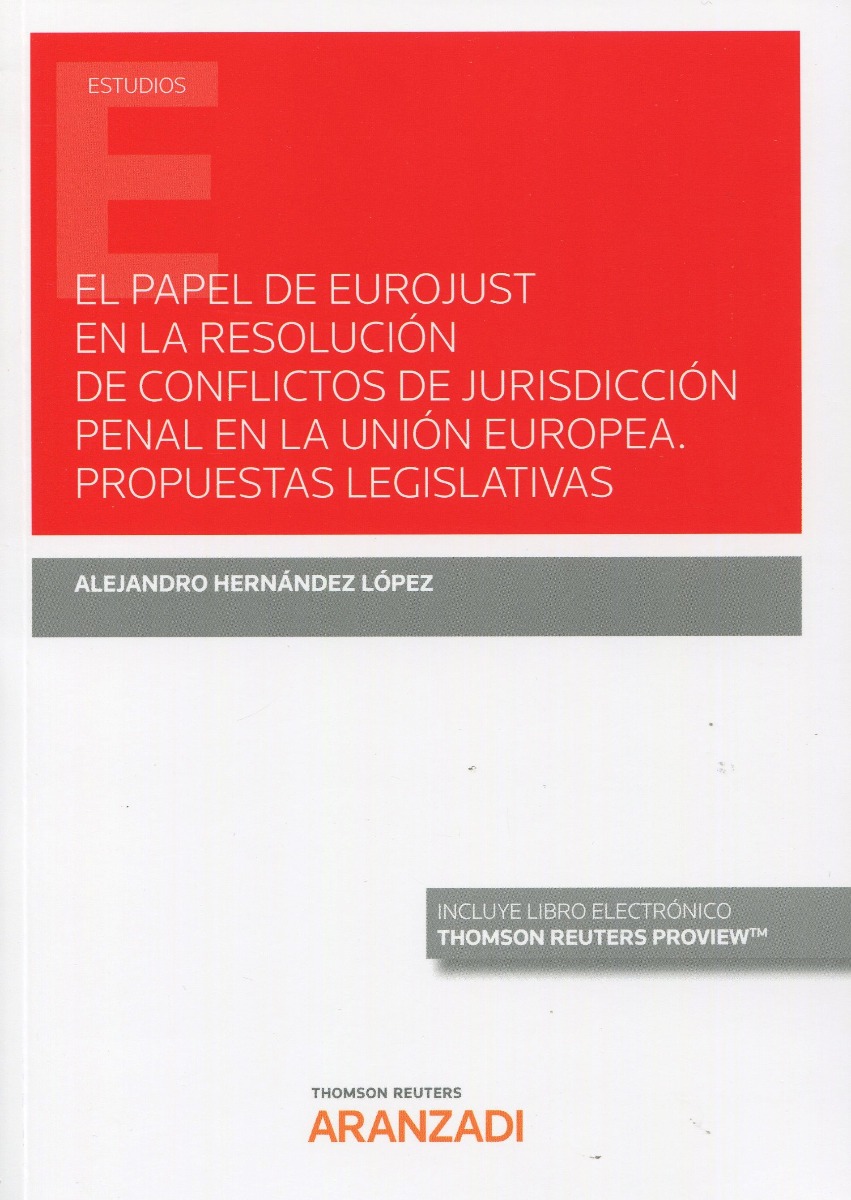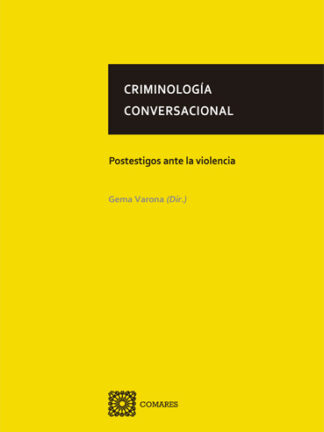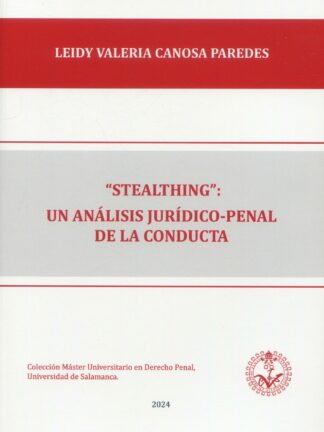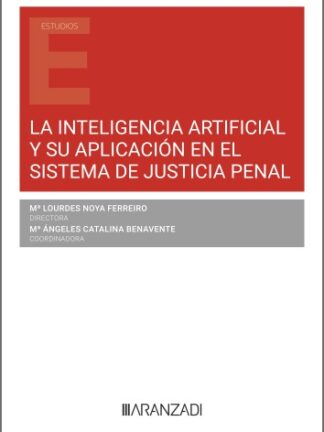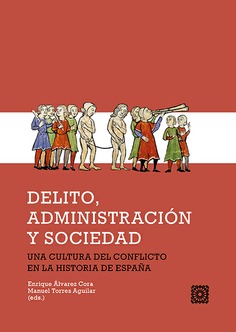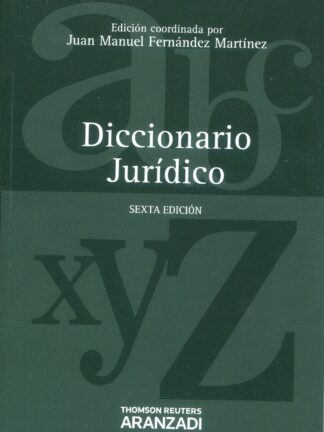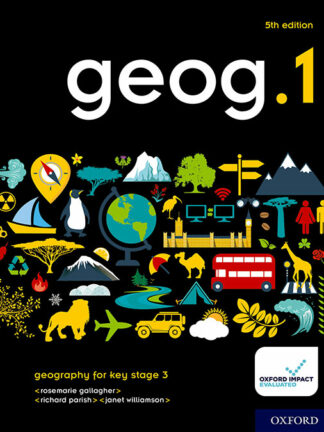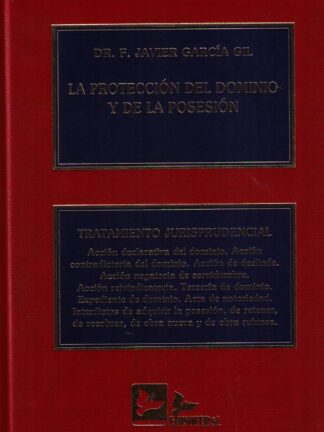Descripción
La presente monografía ofrece una visión integral, crítica y exhaustiva de la respuesta europea y española a los conflictos de jurisdicción penal, incluyendo en particular el estudio de la agencia Eurojust y su papel en su prevención y resolución. El lector encontrará en esta obra un tratamiento actualizado de esta problemática que resulta clave para el correcto funcionamiento y desarrollo del Espacio de Libertad, Seguridad y Justicia. Las debilidades y omisiones presentes en el marco legal y en el procedimiento de resolución en vigor son minuciosamente analizadas, poniendo especial énfasis en el papel de Eurojust y en las numerosas deficiencias que pueden apreciarse desde el punto de vista del respeto a las garantías procesales. El autor defiende la necesidad de adoptar un nuevo modelo que explore las capacidades del derecho primario, a través de la formulación de dos propuestas alternativas de lege ferenda para la prevención y resolución de conflictos de jurisdicción en la Unión Europea, con el objetivo de fomentar el debate académico y legislativo sobre esta cuestión. Esta obra completa el catálogo de Thomson-Reuters Aranzadi.
Referendum Timeline
Part I: The Road to the Referendum
1: Introduction, Aileen McHarg, Tom Mullen, Alan Page and Neil Walker
2: The Independence Referendum in Historical and Political Context, Colin Kidd and Malcolm Petrie
Part II: The Referendum Process
3: The Scottish Independence Referendum: A Model of Good Practice in Direct Democracy?, Stephen Tierney
4: The Referendum Campaign, James Mitchell
Part III: The Referendum Debate
5: The Framing of the Referendum Debate, Tom Mullen
6: The Constitutional Case for Independence, Aileen McHarg
7: Making the Case for Union: Exactly Why Are We Better Together?, Jim Gallagher
8: Scotland, Secession, and the European Union, Sionaidh Douglas-Scott
9: International Law and Processes of Political Settlement, Christine Bell
10: Economics and National Autonomy, Andrew Scott
Part IV: Territorial Politics and the UK Constitution After the Independence Referendum
11: A Constitution in Flux: the Dynamics of Constitutional Change After the Referendum, Nicola McEwen
12: The Territorial Constitution and the Future of Scotland, Neil Walker
13: Devolutionary Federalism Within a Westminster-Derived Context, Nicholas Aroney
14: The Referendum Debate, the Democratic Deficit, and the Governance of Scotland, Alan Page
15: A Neverendum?, Andrew Tickell
Edited by Aileen McHarg, Professor of Public Law, University of Strathclyde, Tom Mullen, Professor of Law, University of Glasgow, Alan Page, Professor of Public Law, University of Dundee, and Neil Walker, Regius Professor of Public Law and the Law of Nature and Nations, University of Edinburgh
Aileen McHarg is Professor of Public Law at the University of Strathclyde. She has written extensively on Scots and UK public law, and participated actively in the referendum debate. Together with the other editors of this volume, she was a founding member of the Scottish Constitutional Futures Forum. She is also a member of the Law Society of Scotland’s Constitutional Law Sub-Committee, an executive member of the UK Constitutional Law Association, and Analysis Editor of the Edinburgh Law Review.
Tom Mullen is Professor of Law at the University of Glasgow. His research interests include constitutional law, administrative law and housing law, and he has written widely on these subjects. In the last few years, he has been working extensively on constitutional change in the UK.
Alan Page is Professor of Public Law at the University of Dundee. He has written extensively on the constitutional law and governance of Scotland since devolution and the independence referendum.
Neil Walker is Regius Professor of Public Law and the Law of Nature and Nations at the University of Edinburgh, having previously been Professor of European Law at the European University Institute. He has written extensively on matters of UK, European, and transnational constitutional theory and practice. He is a Fellow of the British Academy and also of the Royal Society of Edinburgh. He is general editor of the OUP monograph series Oxford Constitutional Theory.
Contributors:
Nicholas Aroney is Professor of Law at TC Beirne School of Law, University of Queensland.
Christine Bell is Professor of Constitutional Law at Edinburgh Law School, University of Edinburgh.
Sionaidh Douglas-Scott holds the Anniversary Chair in Law at Queen Mary University of London. She is also the co-director of the Centre for Law and Society in a Global Context.
Jim Gallagher is Visiting Professor at the University of Glasgow, and Nuffield Associate Member at Nuffield College, University of Oxford.
Colin Kidd is a Professor at the University of St Andrews.
Nicola McEwen is Professor of Territorial Politics at the University of Edinburgh, and Associate Director for ESRC Scottish Centre on Constitutional Change.
Aileen McHarg is Professor of Public Law at the University of Strathclyde
James Mitchell is Professor of Public Policy Academy of Government at the University of Edinburgh.
Tom Mullen is Professor of Law at the University of Glasgow.
Alan Page is Professor of Public Law at the University of Dundee.
Malcolm Petrie is an Early Career Fellow in the School of History, Classics, and Archaeology at the University of Edinburgh.
Andrew Scott is Professor of European Union Studies at the University of Edinburgh.
Dr Andrew Tickell is a Lecturer at the Glasgow School for Business and Society.
Stephen Tierney is Professor of Constitutional Theory at the University of Edinburgh.
Neil Walker is Regius Professor of Public Law and the Law of Nature and Nations at the University Of Edinburgh.

